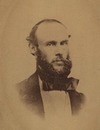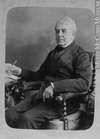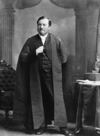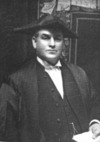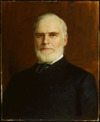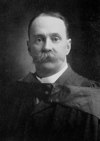Hincks*, cautioned that, unlike the charters of English life insurance companies, which made each shareholder liable for the full value of a company’s capital, Canada Life’s charter limited the
leaders Robert Baldwin and Francis Hincks*. Perhaps his
by Baldwin and Francis Hincks*. Although it too supported the extension of the elective principle, especially with regard to the Legislative
Strachan* that a free election be held. In addition, they attempted to secure the appointment from Ireland of Thomas Hincks, brother of former co-premier Francis
opposition members combined to defeat the Francis Hincks* – Morin government. An immediate dissolution followed. In the election, Sherbrooke
Young* in the Montreal City riding. Over the next few years he ardently opposed Inspector General Francis Hincks
Baldwin* and Francis Hincks*. In 1843 Baldwin, then attorney general for Canada West, entrusted Blake with “the Crowns business on the Eastern
. Bowes*, in Francis Hincks*’ “£10,000 job,” which involved many public officials who profited privately from the Northern Railway scheme. A
place men and the place hunters, between the ‘ins’ and ‘outs.’” Francis Hincks* and Louis-Hippolyte
himself with the radical Clear Grits, now developing as a potent electoral force. One of the Grits who supported Francis Hincks* and Augustin
30, D62, 16, pp.1–45. Debates of the Legislative Assembly of United Canada, II, 101. Hincks, Reminiscences. La Minerve, 27 mai 1865. Montreal Gazette, 21
Hincks* did a survey of Canadian mental hospitals, and while he noted 14 “points of excellency” at the Weyburn facility, mostly relating to its appearance, he also found 54 “points of defect
Hincks and Augustin-Norbert Morin*. In office, Richards displayed an interest in legal reform by promoting the reorganization
Hincks, Benjamin Holmes, Thomas Workman, and John Young. A person who neither smoked nor drank, he was
, interspersed with reflections (London, 1820); Is slavery defensible from Scripture? To the Rev. Dr. Hincks, Killileagh (Belfast, 1831); Remarks on
Francis Hincks* had returned to Canadian politics as minister of finance and ostensibly as a leader of Reform opinion. To bolster Reform
governor than his new definition of the office implied. Fortunately, La Fontaine, Baldwin, and Francis Hincks* desired the same ends as he did
principle to build the railway. Early in 1852 a delegation of Canadians headed by Francis Hincks* met with Chandler in Fredericton and later
Hincks*, and other psychiatrists diagnosed troubled young men and women sent by Toronto’s schools, courts, and social agencies. Still interested in provincial policy regarding the mentally
Lands Department, but he declined because the government of Francis Hincks and Morin had no plans for the


